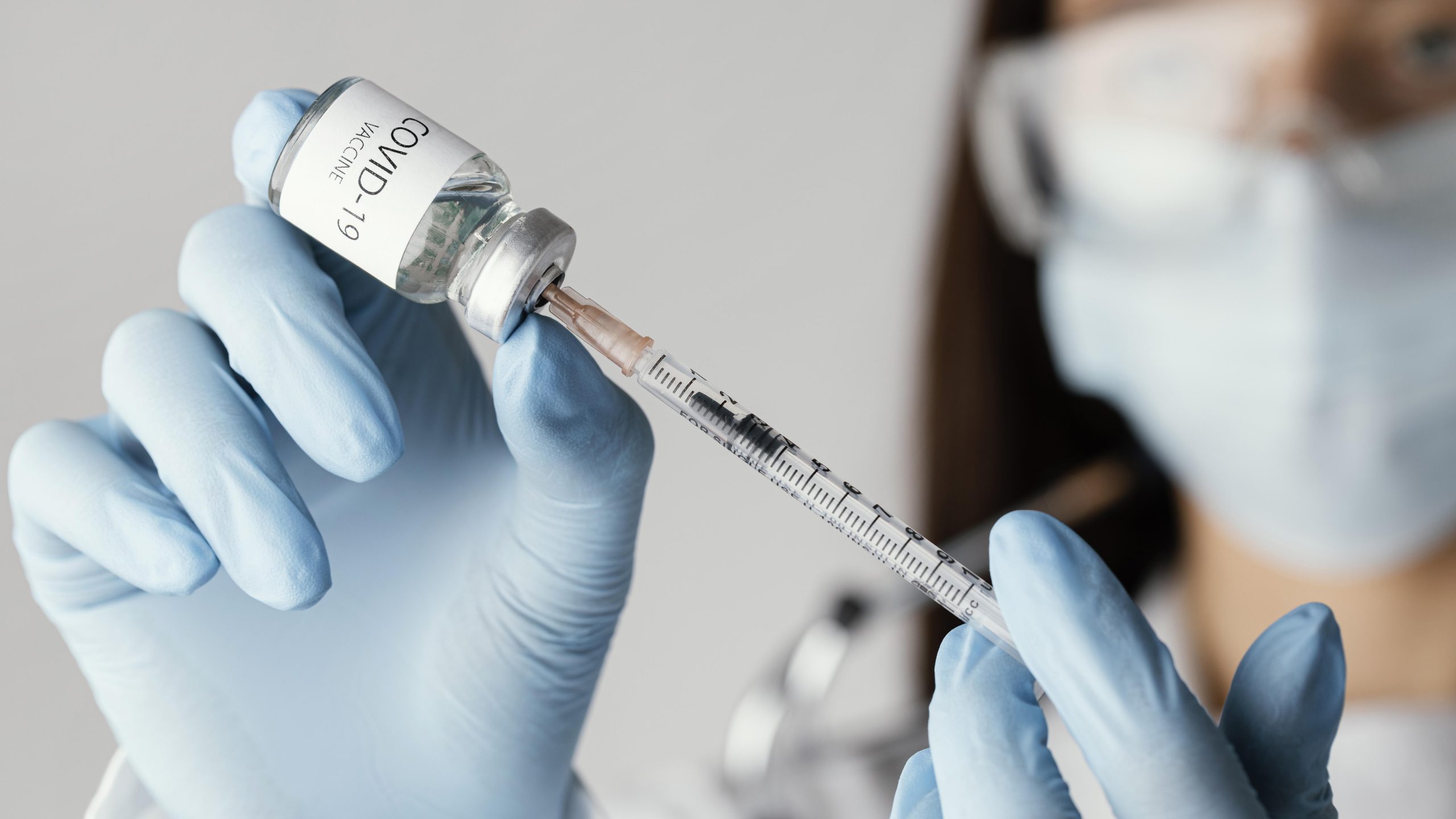

According to a large, prospective, observational study led collaboratively by the Center for International Blood and Marrow Transplant Research, the Blood & Marrow Transplant Clinical Trials Network, and Fred Hutchinson Cancer Research Center, patients with cancer whose immune systems are being supported or rebuilt by bone marrow transplantation should begin receiving vaccines for protection against SARS-CoV-2 three months post-transplant. The study, which involved 22 cancer centers and research organizations in the United States and centered on mRNA-based vaccinations, was published in the journal eClinicalMedicine.
“People with cancer, and especially those undergoing bone marrow transplantation as part of their treatment, are highly vulnerable to infection. Initial studies showed that up to 30% of these patients who became infected with the virus that causes COVID-19 died within four to six weeks,” said Dr. Joshua Hill, a Fred Hutch specialist in treating infectious diseases in people who have cancer and the study’s lead author. Dr. Hill also is an associate professor of medicine at University of Washington School of Medicine.
The study is one of the largest prospective studies of pathogen vaccination within the first year of hematopoietic cell transplantation. It compared the strength of the immune response to the virus in patients who began immunization earlier than four months to those who received their first dose 4 to 12 months following bone marrow transplant.
“We undertook this study to help patients and their doctors determine the best time to begin SARS-CoV-2 vaccination because there was little information on these vaccines in this group of patients,” said Hill. “We found that initiating an mRNA vaccination series between three to four months after bone marrow transplant should be routinely performed as part of a comprehensive infection prevention strategy.”
Although existing U.S. guidelines advocate starting SARS-CoV-2 immunization three to six months after transplant, those recommendations are based on limited information, such as past experience with vaccines that targeted other viruses and did not employ the mRNA platform. Furthermore, participants who had undergone bone marrow transplantation were excluded from the COVID-19 vaccine effectiveness clinical trials.
Until now, trials of SARS-CoV-2 vaccinations in this patient population have been limited to a small number of patients who were inoculated after the 3- to 12-month time range. Some studies also lacked data on T-cell responses and neutralizing antibodies, which are crucial indicators of protection against severe COVID-19.
This study followed 175 individuals who received their first mRNA immunization within 12 months after a bone marrow transplant. Except for one patient, mRNA-based vaccinations were administered. 76 patients were vaccinated during the first four months after bone marrow transplantation, and 99 were vaccinated between 4 and 12 months after the operation.
“There are few studies of mRNA vaccine formulations for SARS-CoV-2 or other pathogens in patients who have undergone bone marrow transplantation,” Hill said. “Our study provides encouraging proof-of-concept for using early vaccination to target this and other pathogens using the mRNA platform.”
Additional study information:
- Participants at comprehensive cancer centers were eligible to participate in the trial, which enrolled between April 22 and November 17, 2021.
- Blood was drawn before and after each vaccine dose for a total of four doses.
- The researchers looked for immunological responses to SARS-CoV-2 spike protein, as well as neutralizing antibodies for various coronavirus variants and SARS-CoV-2-specific T-cell receptors (TCR).
- SARS-CoV-2 antibody titers, neutralizing antibody titers, and TCR data did not change substantially at the examined time points following the second vaccination, regardless of whether patients began immunizations before four months or between four and twelve months after bone marrow transplant.
- The use of immunosuppressive drugs or a diagnosis of graft versus host disease had no effect on the results.
more recommended stories
 CTNNB1 Syndrome Study Explores Beta-Catenin Defects
CTNNB1 Syndrome Study Explores Beta-Catenin DefectsKey Takeaways Researchers in Spain are.
 Tuberculosis Breakthrough with Experimental Antibiotics
Tuberculosis Breakthrough with Experimental AntibioticsKey Takeaways Experimental antibiotics disrupt a.
 National Healthy Longevity Trial Receives Federal Support
National Healthy Longevity Trial Receives Federal SupportKey Summary Up to $38 million.
 Red Blood Cells Improve Glucose Tolerance Under Hypoxia
Red Blood Cells Improve Glucose Tolerance Under HypoxiaKey Takeaways for Clinicians Chronic hypoxia.
 Nanoplastics in Brain Tissue and Neurological Risk
Nanoplastics in Brain Tissue and Neurological RiskKey Takeaways for HCPs Nanoplastics are.
 AI Predicts Chronic GVHD Risk After Stem Cell Transplant
AI Predicts Chronic GVHD Risk After Stem Cell TransplantKey Takeaways A new AI-driven tool,.
 Red Meat Consumption Linked to Higher Diabetes Odds
Red Meat Consumption Linked to Higher Diabetes OddsKey Takeaways Higher intake of total,.
 Pediatric Crohn’s Disease Microbial Signature Identified
Pediatric Crohn’s Disease Microbial Signature IdentifiedKey Points at a Glance NYU.
 Nanovaccine Design Boosts Immune Attack on HPV Tumors
Nanovaccine Design Boosts Immune Attack on HPV TumorsKey Highlights Reconfiguring peptide orientation significantly.
 High-Fat Diets Cause Damage to Metabolic Health
High-Fat Diets Cause Damage to Metabolic HealthKey Points Takeaways High-fat and ketogenic.

Leave a Comment